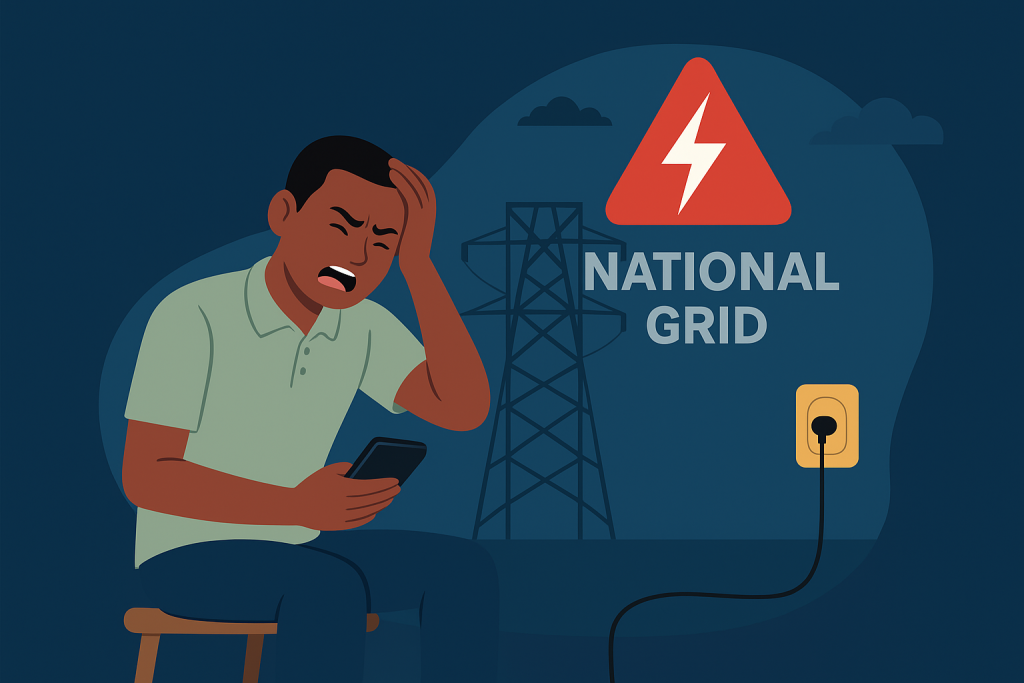Nigeria has once again been plunged into darkness following the collapse of the national electricity grid. The latest incident occurred early Thursday morning, leaving several states and major cities without power supply. This development adds to the long list of recurring grid failures that have continued to frustrate businesses and households across the country.
According to the Transmission Company of Nigeria (TCN), engineers are currently working to restore power. The company noted that the collapse was caused by a “system disturbance,” though full details are still being investigated.
A Recurring Challenge
The Nigerian power grid has a long history of instability. Data from the Nigerian Electricity Regulatory Commission (NERC) shows that the grid has collapsed multiple times in 2023 alone. Each failure affects millions of citizens, disrupts businesses, and further undermines confidence in the country’s energy sector.
Experts say the frequent breakdowns are linked to poor infrastructure, low investment, and inadequate maintenance. Nigeria generates less than 5,000 megawatts of electricity for a population of over 200 million, far below demand.
Impact on Businesses and Households
The immediate effect of the collapse is widespread blackout. Small and medium-sized enterprises (SMEs), which rely heavily on electricity to run daily operations, have been hit hardest. Many businesses have turned to expensive alternatives like diesel generators, increasing their operational costs.
For households, the situation has become a nightmare. Families are forced to endure heat, food spoilage due to lack of refrigeration, and limited access to basic services. In some hospitals, power cuts have put patients at risk, especially in emergency units that depend on a steady power supply.
Government’s Response
The Federal Government has acknowledged the persistent grid failures and promised reforms. In recent months, the Minister of Power, Adebayo Adelabu, highlighted ongoing efforts to stabilize the system. These include investing in transmission lines, modernizing substations, and encouraging private sector participation in power generation.
However, critics argue that government promises have not translated into meaningful change. Many Nigerians believe that the sector suffers from corruption, poor planning, and lack of political will to implement long-term solutions.
Calls for Alternative Energy
As frustration grows, more Nigerians are exploring alternative energy solutions. Solar power systems are becoming increasingly popular, particularly in urban areas. Experts argue that diversifying Nigeria’s energy mix is crucial to reducing dependence on the fragile national grid.
Renewable energy companies are now seeing higher demand for solar panels, inverters, and batteries. Some state governments have also begun to invest in renewable energy projects to provide stable power to local communities.
What Experts Are Saying
Energy analysts stress that the frequent collapse of the national grid is not just a technical problem but also a policy issue. They recommend decentralizing the grid, allowing states and private companies to generate and distribute their own electricity independently.
Dr. Bode Omole, an energy economist, stated that “Nigeria cannot continue to rely on a single national grid system that has repeatedly failed. We must adopt a decentralized model that empowers states and investors to drive power generation and distribution.”
Nigerians React
On social media platforms like X (formerly Twitter), Nigerians have expressed outrage and disappointment. Many described the situation as unacceptable for Africa’s largest economy. Hashtags such as #NoLight and #NationalGrid trended nationwide, with citizens demanding accountability from government officials and power companies.
Some users mocked the government’s repeated promises of stable electricity, while others called for urgent investment in modern infrastructure. The frustration highlights how deeply the energy crisis affects daily life in Nigeria.
Looking Ahead
Restoring power supply may take several hours or days, depending on the extent of the damage. While the TCN continues its efforts to fix the grid, many Nigerians remain skeptical about how long the restored supply will last.
The repeated failures of the national grid underline a much deeper problem in the country’s electricity sector. Without significant reforms, long-term investments, and better regulation, Nigeria’s dream of reliable power may remain out of reach.
The latest collapse of Nigeria’s national grid serves as a reminder of the country’s ongoing energy challenges. It is not just about electricity; it is about economic growth, quality of life, and national development. Until Nigeria finds a lasting solution, blackouts may continue to define the nation’s energy story.



